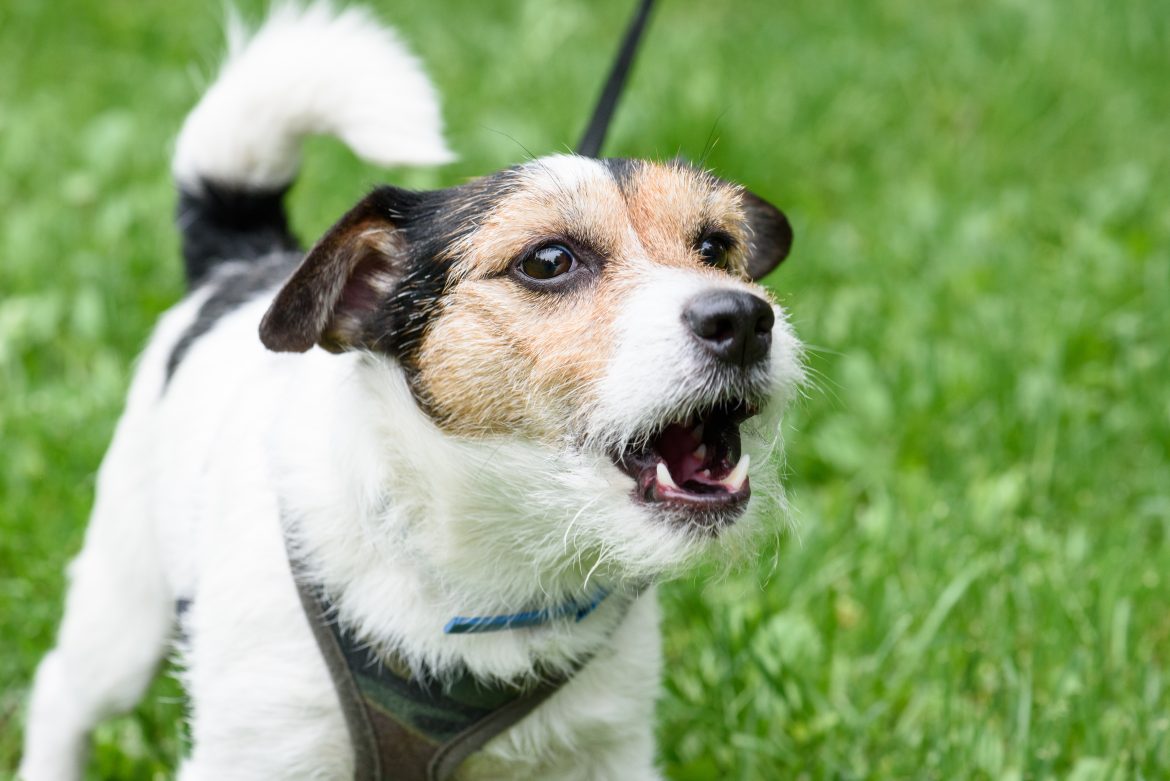There are many factors that go into why a dog can be aggressive. From breed to upbringing, there’s a lot that contributes to the causes of aggression in dogs.
Dogs usually only become aggressive when they feel threatened in some way, if they’re in pain or when they show dominance. But there are other reasons why some dogs are more aggressive than others
Aggression in dogs is one of the most common and serious behavioural issues. It’s also one of the key reasons families give dogs up to shelters. Many dogs are often put to sleep due to their aggression issues too.
So, what causes some doggos to react differently than others?
Different causes of aggression
Personality traits come in different sizes
Not so long ago, dogs were bred to perform certain duties. Some for their herding capabilities, some for their protective and guarding tendencies, some for their hunting prowess and others for their fighting skills.
These traits have been bred in dogs for many years but research has shown that although some of these traits are associated with certain breeds, there’s little research to show that just because a dog is a certain breed, they’ll definitely have that characteristic.
Research has shown that dogs are similar to humans in the sense that they have common genetic mechanisms that contribute to individual differences in social behaviour.
This means that who a dog is (genetics) and the way they’re raised or what they’re exposed to contributes massively to how they behave.
Explore: Emergency vet visits: How to prepare
Hormone levels
Just like in humans, dogs have hormones that impact their behaviour, in particular, oxytocin and vasopressin.
Oxytocin vs vasopressin
Oxytocin is known as the “love” hormone, and it plays an important role during birth, the formation of bonds and social behaviour. It also helps suppress the release of cortisol – the body’s main stress hormone.
Oxytocin often works in opposition to vasopressin which is known to trigger the body’s “fight or flight” response.
In a study, it was shown that dogs who have higher levels of oxytocin are less aggressive than dogs with higher levels of vasopressin. There is very little evidence that this is accurate to all dogs though.
A dog’s behaviour is still mainly associated with its genes, experiences and psychological traits.
Signs that your dog may become aggressive
Any dog can be susceptible to becoming aggressive so it’s important that you keep track of any odd behaviours that your dog starts to show. Things to keep an eye out for are:
- Growling and snapping
- A rigid body and quickly wagging tail
- Lip licking or yawning
- Averting gaze
- Raised fur
- Cowering and tail tucking
- Seeing whites of the eyes
Not all dogs who behave like this are aggressive, many of these warning signs are also an indication of anxiety or fear.
Discover: How to stop your dog from jumping up (for good this time)
What to do if your dog is aggressive
If your dog is aggressive more often or in situations where there are no clear causes of aggression, or aggression isn’t warranted, you may need to take it seriously and get your doggo some help.
- Chat to your vet: Take your dog to the vet and explain their behaviour. Ask your vet for some advice or if your dog should take some calming medications.
- Call in a professional: Find a behaviouralist that can assess your dog’s behaviour. The behaviouralist will be able to train your dog and give you advice on how to help your dog.
- Create a plan: If you’re seeing a behaviouralist or a trainer, they’ll give you techniques to use at home. Create a plan where these techniques are implemented into your dog’s everyday routine so they can get better each day.
- Avoid punishment: Punishing your dog for their aggression can often make the aggression worse. If your response is to yell or hit your dog, they may feel threatened and the situation may escalate. Chat to a trainer about what would be the best way to respond to the situation.
- Consider medication: As we mentioned above, there are calming medications that could help your doggo relax. It’s important to understand that a dog experiencing fear, stress or anxiety is incapable of learning new things. Chat to your vet about your options.
Handling unavoidable situations
Think about the situations or experiences that may be causes of aggression in your dog. Are these situations unavoidable?
For example, is your dog unusually aggressive around children? Do you have kids at home? If you do, it might be a better option to find your doggo a loving home where there aren’t any children.
Discover: 9 Smart Ways to Save Money on Vet Costs in South Africa
There are many factors may be causes of aggression in dogs. The breed of the dog doesn’t automatically mean that they’re aggressive. If you find yourself with a more aggressive dog, please get your doggo help soon so the problem doesn’t escalate.
Yours in Not-So-Average Pet Advice,
The Petinsurance.co.za Team
#NotYourAveragePetAdvice



